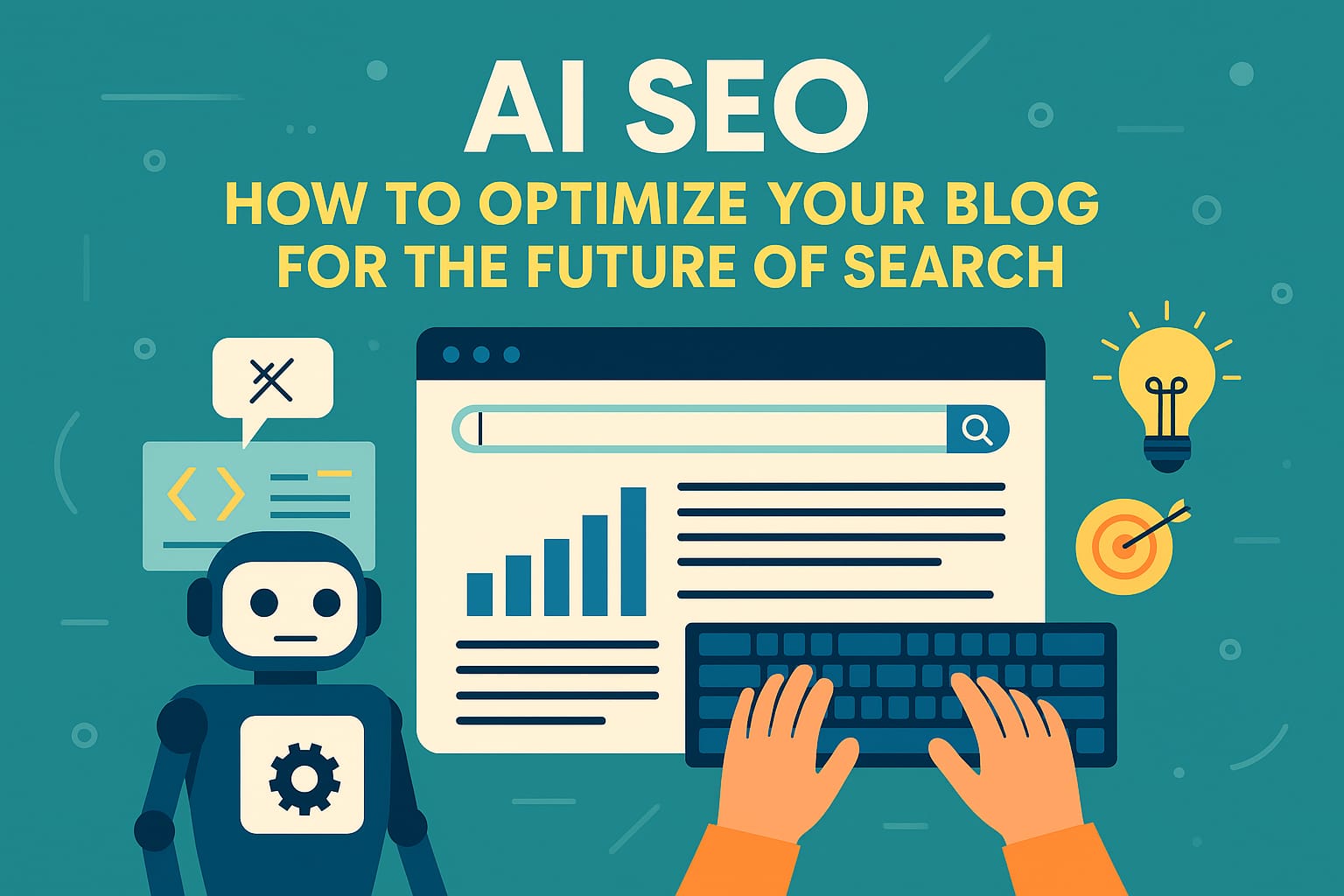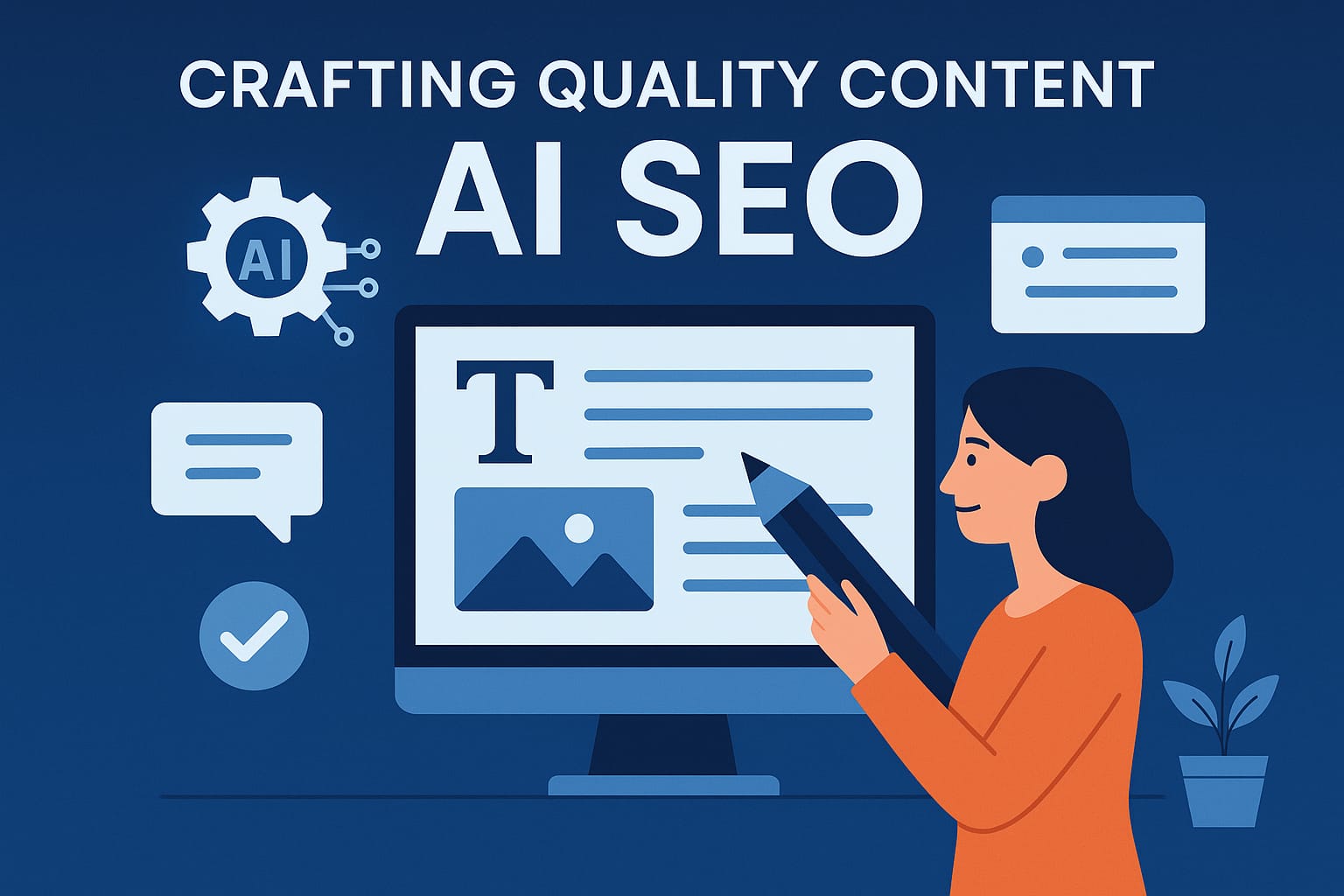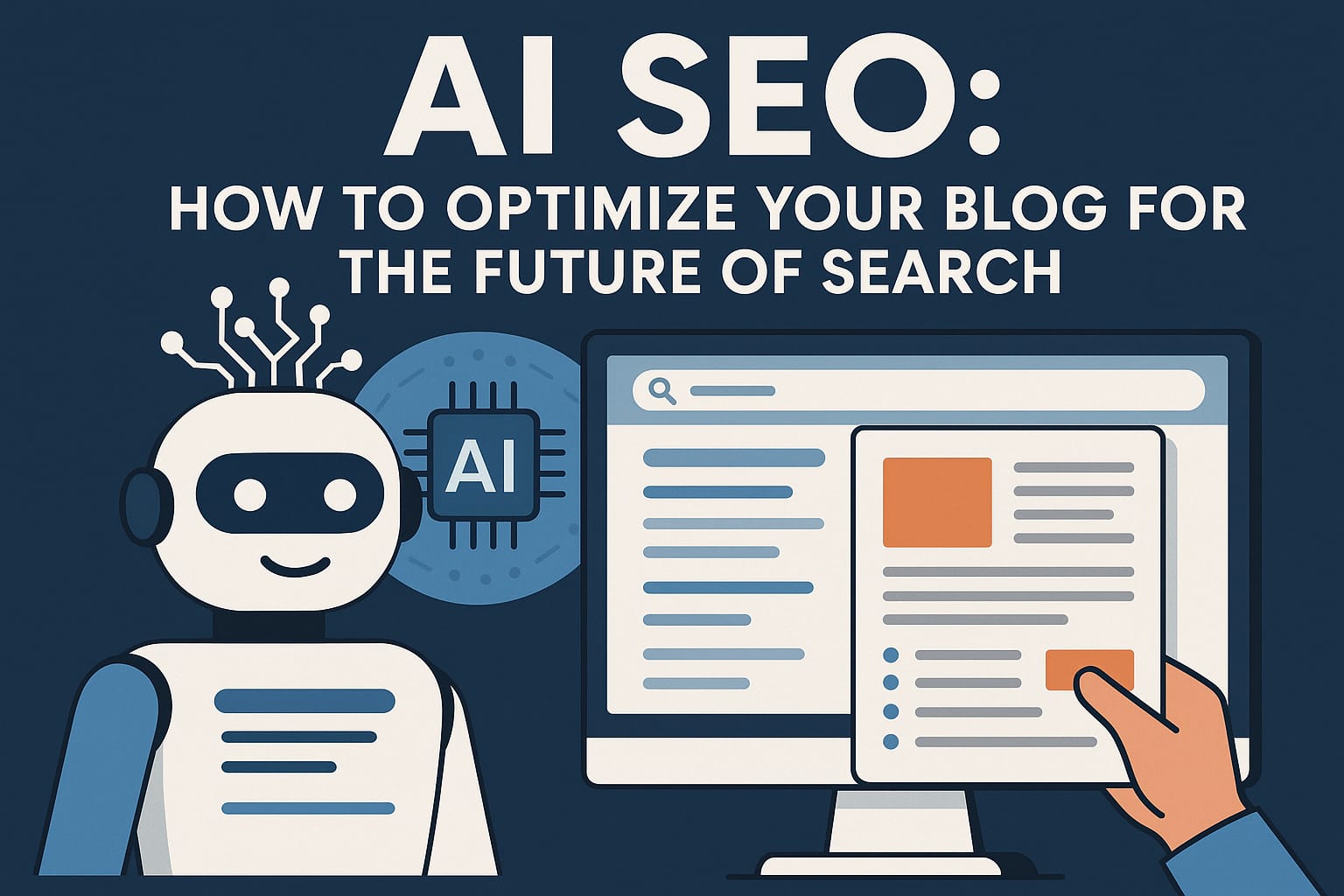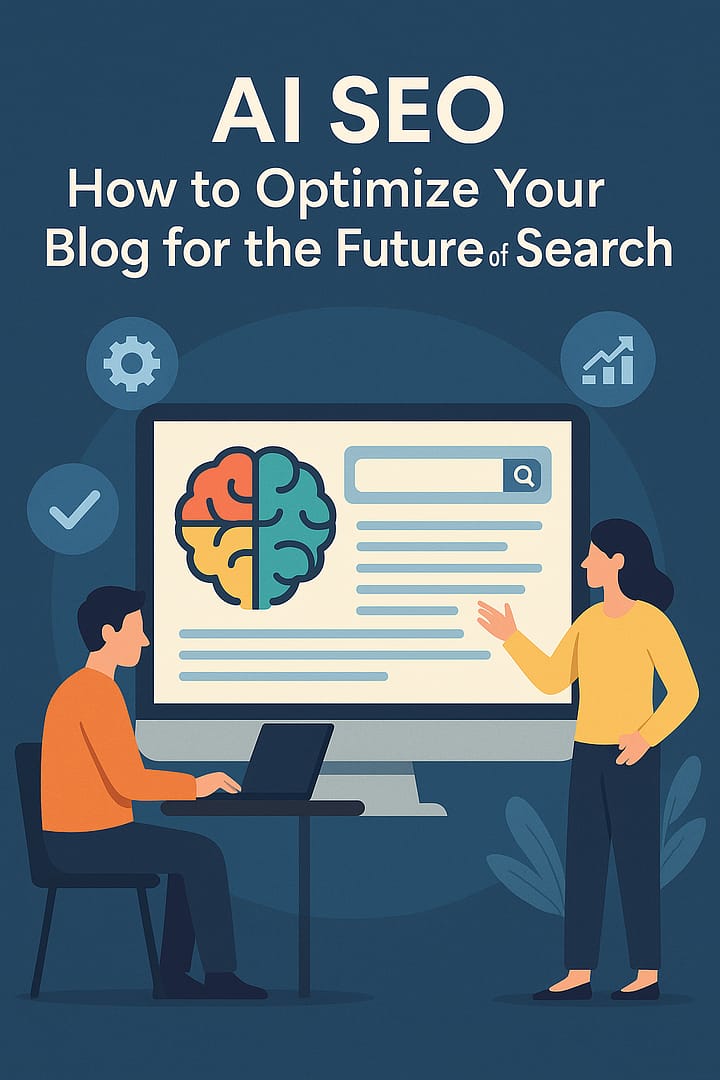AI SEO refers to the application of artificial intelligence technologies in search engine optimization to improve how content ranks and performs in search results. Unlike traditional SEO, which often focuses on keyword stuffing and backlinks, AI SEO uses advanced techniques like natural language processing (NLP), machine learning, and AI-generated content analysis to understand and predict user intent.
At Rank with Haymitch, we emphasize how AI SEO is transforming content creation—from drafting to optimization—helping websites rank more effectively by aligning with how AI-powered search engines interpret information.
AI has shifted the landscape of SEO by prioritizing content that delivers genuine value, relevance, and user engagement. Search engines now use AI to evaluate many factors beyond keywords, including content structure, context, and semantics. By optimizing your blog with AI SEO strategies, you not only improve rankings but also enhance the user experience, increase voice search compatibility, and gain better placement in featured snippets.
For readers of Rank with Haymitch, understanding why AI SEO matters means recognizing that staying competitive requires embracing these intelligent search technologies now. This blog will guide you through practical steps to future-proof your content and achieve measurable SEO success.
Content remains king in the world of SEO, but with AI SEO, the emphasis shifts even more heavily toward quality. Google and other search engines prioritize content that demonstrates E-E-A-T: Experience, Expertise, Authority, and Trustworthiness. This means your blog posts should be in-depth, well-researched, and trustworthy.
We recommend using AI tools to assist with content ideas and drafts, but never rely solely on AI. Always add your unique insights, examples, and thorough edits to ensure the content reflects your expertise and engages your readers. This approach helps your blog stand out and meet the expectations of both AI-powered algorithms and human readers.
Effective keyword research is crucial in AI SEO. Modern AI tools can help you discover not only high-traffic keywords but also long-tail and conversational phrases that match how people naturally ask questions, especially via voice search. Incorporating these keywords thoughtfully into your blog makes it easier for AI algorithms to rank your content for relevant searches.
Through Rank with Haymitch, you can access strategies for leveraging AI-powered keyword research tools to find the best keywords for your niche. Focus on including question-based keywords and frequently asked questions to capture valuable search intent and increase your chances of appearing in AI-driven featured snippets.
Organizing your blog content is essential for both readers and AI search engines. Use clear headings, subheadings, and bullet points to create a logical flow that makes information easy to digest. Well-structured content improves readability and helps AI better understand the relevance and context of your information.
At Rank with Haymitch, we emphasize the importance of including an FAQ section within your blog. This not only answers common questions your audience may have but also allows you to leverage schema markup, which boosts your chances of appearing in AI-powered rich results.
Schema markup is a powerful tool that helps AI and search engines interpret your blog content more accurately. Implementing the FAQ schema or other relevant structured data can improve your blog’s visibility in search results, often resulting in rich snippets that attract more clicks.
Rank with Haymitch advocates for combining solid technical SEO practices with AI SEO strategies. This includes optimizing site speed, mobile responsiveness, and ensuring a clean URL structure—all of which support AI-friendly content discovery and improved rankings.
AI tools can significantly boost your blogging efficiency and effectiveness with SEO. From generating topic ideas to crafting drafts and analyzing keyword performance, these tools enable you to produce optimized content faster.
At Rank with Haymitch, we recommend using AI-powered SEO tools like Clearscope, Surfer SEO, or Ahrefs to analyze your content’s SEO performance and identify areas for optimization. However, always balance AI-generated content with your expertise and creativity to maintain authenticity and quality that resonate with your audience.
Voice search is increasingly prevalent, driven by AI assistants and smart devices. This shift means users ask questions in natural, conversational language. To optimize for this trend, Rank with Haymitch suggests incorporating long-tail keywords and phrases that reflect natural language. Frame your content in a way that answers direct questions clearly and succinctly, improving your chances of ranking in AI-driven voice search results.
Your blog’s titles and meta descriptions are vital for attracting clicks from search results. Incorporate your primary AI SEO keywords naturally and early in your titles and meta tags to improve relevancy signals to search engines.
At Rank with Haymitch, we emphasize the power of crafting compelling meta descriptions that not only include keywords but also engage the reader with clear benefits or calls to action. This approach increases your click-through rate, sending positive signals to AI-powered algorithms for better rankings.
AI SEO is a fast-evolving field, and staying ahead requires ongoing learning and content maintenance. Regularly update your blog posts with the latest AI SEO trends, best practices, and fresh data to keep your content authoritative and relevant.
Rank with Haymitch encourages bloggers to track their website analytics, monitor AI SEO developments, and refine their strategies accordingly. By continuously optimizing your blog, you ensure it stays competitive in an AI-driven search environment.
AI SEO is reshaping how blogs are written, optimized, and ranked. By incorporating quality content, smart keyword research, strong structure, and leveraging AI tools alongside your expertise, you can improve your blog’s performance significantly. At Rank with Haymitch, we’re committed to helping you navigate this new landscape with proven strategies for AI SEO success. Start implementing these tactics today to future-proof your blog and achieve better visibility in search results.





